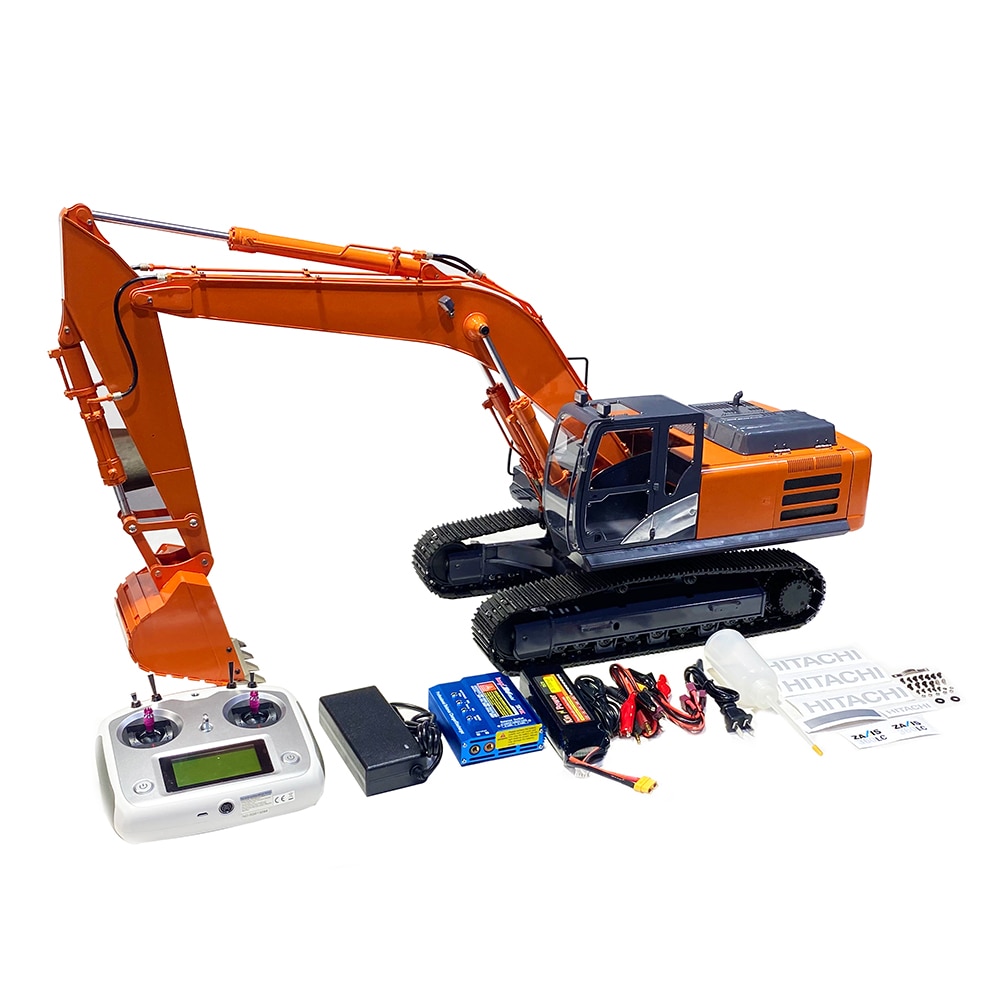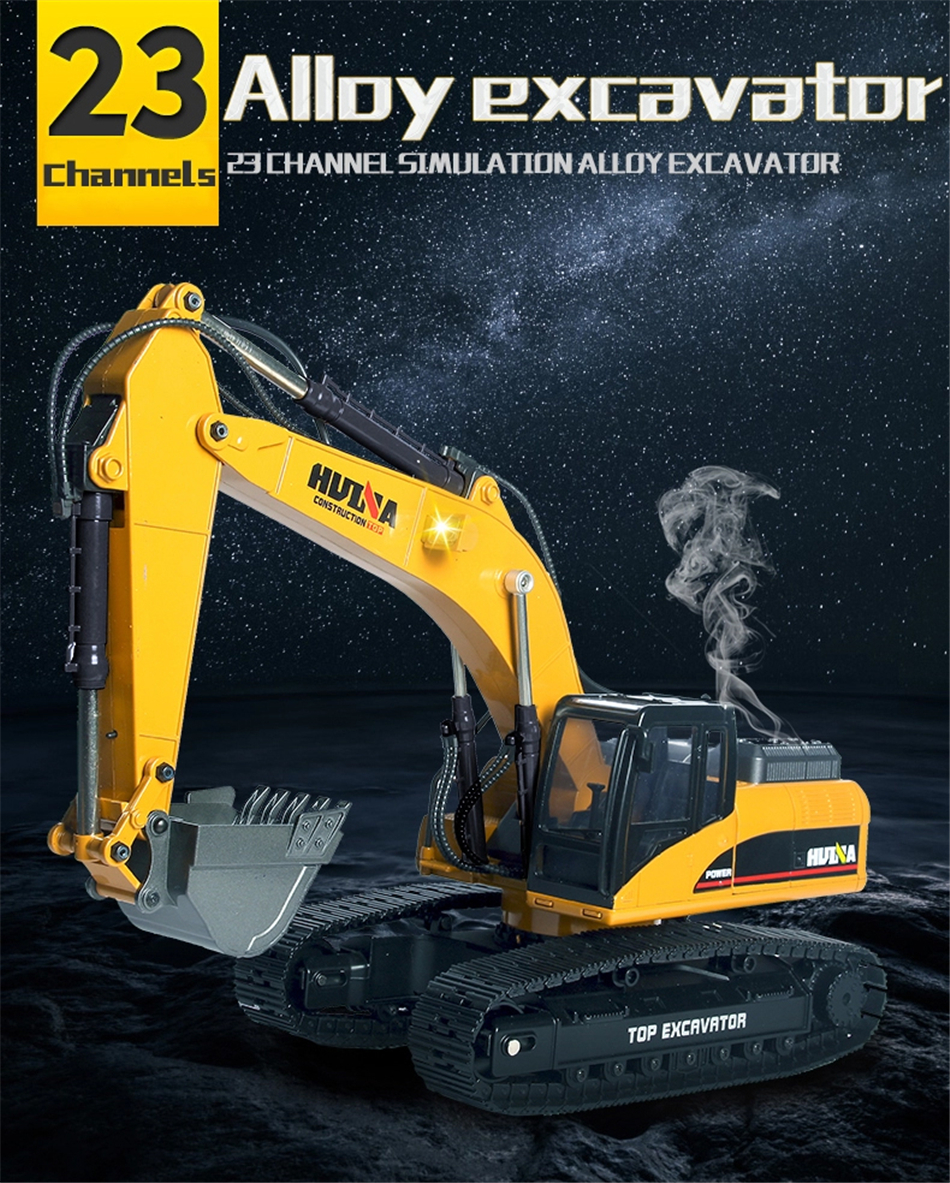Discover the Importance of Excavator in Modern Construction Projects
Excavators are important tools in contemporary construction projects. Their versatility enables them to do a variety of tasks, from digging and grading to demolition and website preparation. Advanced features, such as hydraulic attachments and general practitioners, boost their capacities and performance on work sites. As the sector evolves, the importance of excavators expands even a lot more. Recognizing their function can reveal insights into the future of construction techniques. What lies ahead for these makers?
The Versatility of Excavators in Different Projects
Although excavators are commonly connected with large-scale building jobs, their adaptability enables them to be utilized in a vast array of applications, from property landscaping to energy maintenance. In metropolitan setups, excavators can navigate limited rooms to dig foundations for homes or set up drain systems. Their capacity to perform delicate jobs makes them ideal for landscape design projects, where they can excavate for ponds or plant trees. Furthermore, excavators play an essential function in energy maintenance, successfully excavating trenches for pipelines or wires without interfering with bordering areas. In agricultural applications, they aid in land clearing up and soil preparation. Additionally, their versatility allows them to be furnished with different attachments, improving their capability across various jobs. This complex nature of excavators not just streamlines different building procedures yet also demonstrates their important duty in contemporary facilities advancement and maintenance.
Secret Functions and Kinds of Excavators
The discussion on crucial features and kinds of excavators highlights the crucial qualities that make these equipments very useful in building. Different excavator types, each developed for specific jobs, show their versatility and performance throughout various applications. rc excavator. Comprehending these classifications and features is vital for enhancing their usage in contemporary building jobs
Excavator Types Overview
Excavators play a pivotal role in modern building, providing flexibility and efficiency across various jobs. These heavy machinery units can be found in numerous kinds, each tailored for details applications. The most usual types consist of spider excavators, recognized for their security on unequal surface, and rolled excavators, which offer greater movement on smooth surface areas. Miniature excavators are preferred for small-scale tasks and tight rooms, while long-reach excavators are designed for deep digging. In addition, there are customized excavators, such as hydraulic excavators, which boost power and precision. Each kind includes one-of-a-kind capabilities, making them necessary for tasks ranging from excavating and grading to demolition and material handling. Recognizing these variants permits building and construction experts to choose the right excavator for their job needs.
Trick Includes Explained
Comprehending the vital attributes of excavators boosts their effective application in building and construction tasks. Excavators are defined by their effective hydraulic systems, which provide the essential force for digging, training, and moving materials. Their expressed arms permit for a variety of activity, assisting in accurate operations in confined spaces. Additionally, the selection of accessories, such as containers, grapples, and augers, expands their adaptability to fulfill various task needs. The dimension and weight of excavators additionally add to their stability and ability to move on various terrains. Additionally, innovations in modern technology have actually led to the integration of general practitioner and automation, boosting accuracy and efficiency in excavation tasks. These functions collectively position excavators as vital devices in modern-day building.
Applications in Building and construction
Changing building websites, excavators play a critical duty throughout various applications, ranging from residential building tasks to massive infrastructure growths. These versatile devices are furnished for tasks such as excavating foundations, trenching for utilities, and website grading. Different sorts of excavators, including spider, wheeled, and mini excavators, supply specific advantages customized to the task requirements. Crawler excavators master rough terrains, while wheeled excavators offer movement on paved surfaces. Small excavators are suitable for constrained spaces, making them prominent in metropolitan settings. The efficiency and power of excavators significantly accelerate building and construction procedures, making certain prompt task completion. Their flexibility further improves their relevance, permitting construction groups to deal with a varied range of difficulties properly.
Enhancing Efficiency and Productivity on Work Sites
Making the most of performance and efficiency on work sites is a crucial purpose in modern-day building and construction. Excavators play a crucial role in achieving this goal by simplifying numerous tasks. Their ability to execute numerous features-- such as digging, lifting, and grading-- reduces the demand for added devices, consequently saving time and resources.Moreover, excavators improve operations by allowing for faster conclusion of jobs. With advanced attributes like hydraulic accessories and general practitioners technology, they can perform precise operations that decrease errors and rework. This precision not only enhances the top quality of work however also maximizes material usage, adding to cost savings.The flexibility my site of excavators allows them to adjust to various site conditions, making certain that tasks progress smoothly despite obstacles. By incorporating excavators into building and construction processes, teams can substantially increase their general performance, causing timely task conclusion and enhanced success.
Safety Benefits of Making Use Of Excavators
Excavators greatly improve safety and security on building and construction websites via enhanced driver exposure and reduced manual work risks. By offering operators with Continued a clear sight of their environments, excavators assist to stop injuries and accidents. Additionally, the machinery minimizes the need for employees to take part in dangerous hands-on jobs, better promoting a much safer workplace.
Improved Driver Visibility
Construction sites can be chaotic and filled with potential threats, boosted operator exposure plays an important function in making certain security when utilizing excavators. Modern excavators are designed with big, unobstructed home windows and strategically positioned mirrors, allowing drivers to keep a clear view of their environments (rc excavator). This enhanced presence is essential for finding pedestrians, various other equipment, and different obstacles, considerably decreasing the risk of crashes. Furthermore, many excavators include sophisticated modern technology, such as cams and sensors, to give drivers with additional point of views, further improving awareness. The ability to see even more plainly not just help in reliable operation yet likewise promotes a much safer work environment, making it less complicated for drivers to navigate complicated building and construction sites without jeopardizing safety and security requirements
Lowered Guidebook Labor Risks
When hand-operated labor is decreased through the usage of excavators, many safety advantages arise, significantly boosting the wellness of construction workers. Excavators reduce the physical stress associated with hefty lifting and repetitive tasks, properly lowering the threat of bone and joint injuries. By automating processes such as digging, grading, and relocating materials, they permit employees to maintain a much safer distance from prospective threats. Additionally, excavators are equipped with advanced security functions, such as rollover defense systems and improved operator ergonomics, which even more guard employees on website. The result is a significant decrease in workplace mishaps and injuries, causing increased performance and morale amongst building groups. Ultimately, the adoption of excavators contributes to a more secure and more efficient construction environment.
Excavators in Earthmoving and Website Preparation
In modern building, a substantial portion of earthmoving and site preparation tasks depends on the performance and versatility view publisher site of excavators. These devices are developed to deal with various soil kinds and surface, making them crucial for grading, excavating, and trenching tasks. Their hydraulic arms can be outfitted with various accessories, such as containers and augers, allowing drivers to customize their approach based on certain project requirements.Excavators excel at relocating huge quantities of planet swiftly and effectively, which speeds up the total construction timeline. They can browse limited spaces and testing websites where conventional tools may battle, improving performance. In addition, the precision of excavators assurances that site prep work follows strict requirements, lessening the risk of errors that can bring about pricey rework.
The Function of Excavators in Demolition Tasks
Excavators play a vital role in demolition tasks, as they have the power and dexterity required to take apart frameworks successfully. Furnished with different accessories such as hydraulic breakers, shears, and grapples, these devices can adapt to different demolition needs, whether for little structures or huge industrial websites. Their flexibility makes it possible for operators to tackle intricate projects while maintaining safety and precision.In addition to their demolition abilities, excavators assist in debris elimination, ensuring that work sites remain orderly and risk-free. By damaging down frameworks into manageable pieces, they enable for structured clearing up and recycling of products, lining up with modern sustainability efforts.Moreover, excavators can access limited rooms and navigate irregular terrain, making them important in city demolition tasks. In general, their durable style and multifunctionality make excavators a vital asset in the demolition stage of building, contributing considerably to task timelines and performance.


Future Fads in Excavator Innovation and Usage
As the construction industry progresses, innovations in excavator technology are poised to change their use and efficiency noticeably. One substantial pattern is the assimilation of automation and expert system, enabling excavators to run with minimal human intervention. This change will improve precision in tasks such as grading and trenching, lowering human error and increasing productivity.Additionally, the increase of hybrid and electrical excavators is forming a much more sustainable building and construction setting, reducing carbon exhausts and fuel prices. Improved telematics systems are additionally arising, enabling real-time monitoring of machine performance and upkeep requirements, which can bring about much better operational performance and longer equipment lifespan.Moreover, advancements in add-on modern technology are expanding the versatility of excavators, enabling them to carry out a wider variety of jobs. The mix of these fads demonstrates a future where excavators are smarter, greener, and more adaptable, eventually reshaping building task dynamics.
Often Asked Concerns
Exactly How Do Excavators Contrast to Other Building And Construction Equipment?
Excavators, identified by their versatility and power, master digging and earthmoving compared to various other equipment. Their ability to carry out different tasks, including training and demolition, makes them crucial in construction tasks, boosting general effectiveness.

What Is the Ordinary Life Expectancy of an Excavator?
The average lifespan of an excavator typically ranges from 7,000 to 10,000 operating hours, depending upon upkeep, usage conditions, and design. Correct care can prolong this life-span, making certain peak efficiency throughout its functional years.
Exactly How Are Excavators Preserved for Optimum Performance?
Excavators require normal upkeep for peak performance, including routine inspections, fluid checks, filter replacements, and prompt repair services. Applying a precautionary upkeep schedule assists lengthen their lifespan and guarantees effective operation in various building and construction settings.
What Are the Prices Related To Leasing vs. Buying an Excavator?
The prices related to renting out versus buying an excavator vary considerably. Renting offers reduced upfront costs but can collect with time, while buying needs a significant first financial investment, but gives long-lasting financial savings and possession possession benefits.
What Training Is Needed to Operate an Excavator?
Running an excavator calls for specialized training, usually consisting of security procedures, maker operation methods, and ecological recognition. Certification programs commonly mandate practical experience, enabling operators to deal with numerous tasks efficiently while making sure compliance with industry laws. The most usual types include crawler excavators, recognized for their security on unequal terrain, and rolled excavators, which provide greater movement on smooth surface areas. Miniature excavators are preferred for limited areas and small-scale jobs, while long-reach excavators are created for deep excavating. Furthermore, there are specialized excavators, such as hydraulic excavators, which improve power and accuracy. Various kinds of excavators, including spider, wheeled, and mini excavators, provide details benefits tailored to the job needs. Crawler excavators stand out in harsh terrains, while rolled excavators offer flexibility on smooth surface areas.